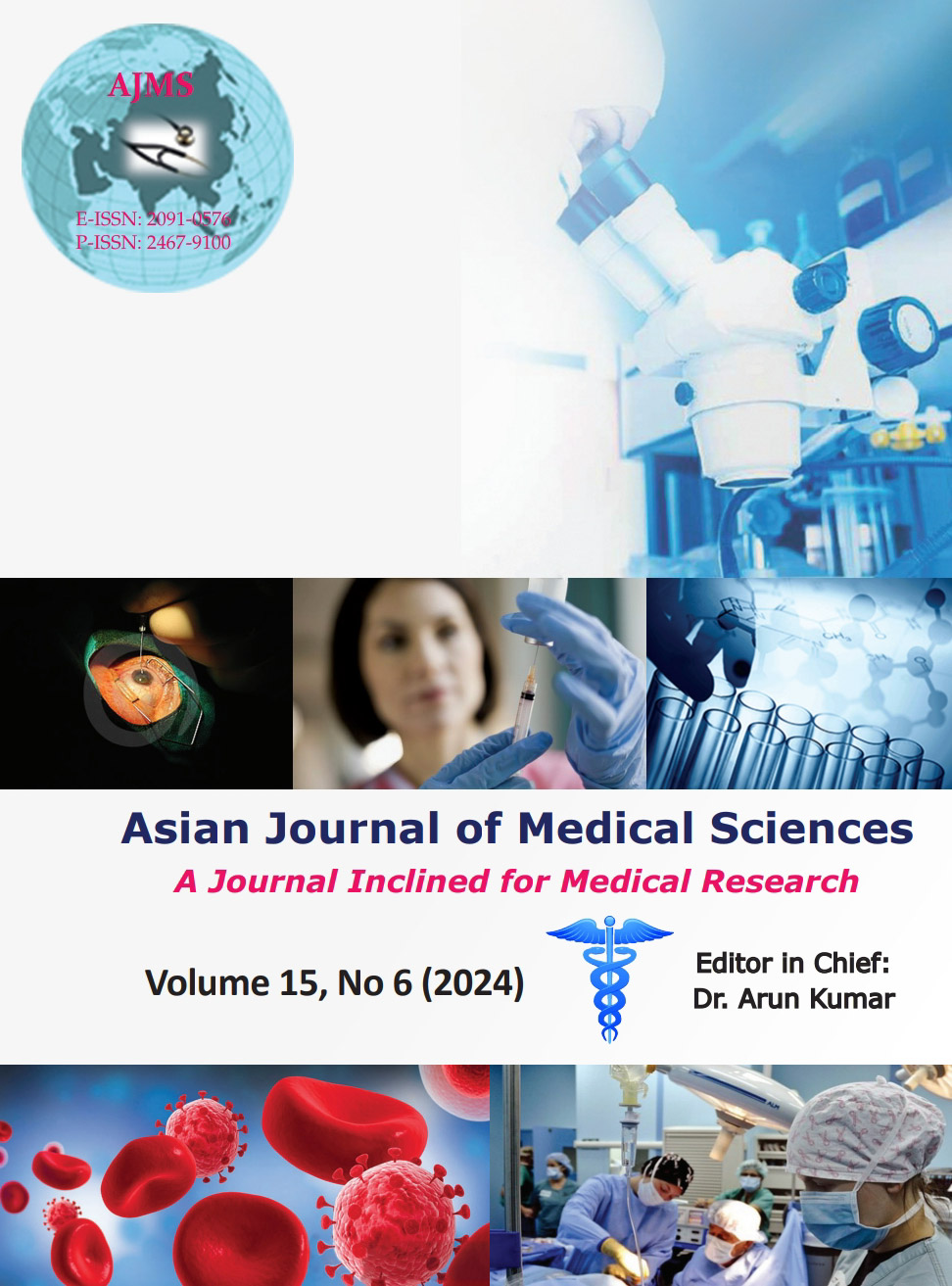Effects of administration of melatonin on agitation and duration of stay in patients of traumatic brain injury admitted to neurosurgical intensive care unit – A retrospective study
Keywords:
Neurosurgery; Intensive care unit; Agitation; Length of stay; MelatoninAbstract
Background: Agitation is frequently encountered in patients recovering from traumatic brain injury (TBI) in the intensive care unit (ICU). The etiopathology for agitation is multifactorial. Melatonin has been widely used to study the effects of delirium in ICU, however, its effect on agitation is not well studied.
Aims and Objectives: The aim of this study was to assess the effect of melatonin administration on the prevalence of agitation and length of stay in patients with severe TBI, managed conservatively, or undergoing decompressive craniectomy.
Materials and Methods: A retrospective observational study with 70 patients undergoing various decompressive craniotomy or managed conservatively, and admitted to neurosurgical ICU was included in the study. Thirty-six patients were recruited from the control group and 34 patients received melatonin during their stay in the ICU. In this study, records of 70 patients who had suffered isolated TBI with no associated injuries were analyzed. The patients had a Glasgow coma score of 3–14 on admission to ICU. The patients were managed as per the standard protocols, as per the existing guidelines, and based on TBI guidelines.
Results: A non-significant decreasing trend of agitation and reduced duration of ICU stay was noted in patients who received melatonin compared with the control group. The prevalence of agitation observed on modified Ramsay scale (Mean±SD) in patients who received melatonin on Day 3, Day 4, Day 5, Day 6, Day 7, Day 8, and Day 9 were −1.67±3.01; −1.61±2.82; −1.2±2.55; −1.23±2.51; −1.23±2.11; −1.05±2.09; and 0.76±2.03, respectively. These scores were slightly lower than observed in the control group on Day 3, Day 4, Day 5, Day 6, Day 7, Day 8, and Day 9 as −1.58±3.16; −1.33±2.72; −1.08±2.46; −1.13±2.25; −0.94±1.87; −0.52±1.7; and 0.52±1.36, respectively. The mean±SD duration of stay in ICU of patients receiving melatonin (13.14±3.37) and not receiving melatonin (14.52±3.73) was comparable (P=0.1).
Conclusion: Although there was a decreased prevalence of agitation and a decrease in the mean duration of the ICU stay in patients who received oral melatonin, these beneficial effects did not show any statistical significance once compared with the control group.
Downloads
Downloads
Published
How to Cite
Issue
Section
License
Copyright (c) 2024 Asian Journal of Medical Sciences

This work is licensed under a Creative Commons Attribution-NonCommercial 4.0 International License.
Authors who publish with this journal agree to the following terms:
- The journal holds copyright and publishes the work under a Creative Commons CC-BY-NC license that permits use, distribution and reprduction in any medium, provided the original work is properly cited and is not used for commercial purposes. The journal should be recognised as the original publisher of this work.
- Authors are able to enter into separate, additional contractual arrangements for the non-exclusive distribution of the journal's published version of the work (e.g., post it to an institutional repository or publish it in a book), with an acknowledgement of its initial publication in this journal.
- Authors are permitted and encouraged to post their work online (e.g., in institutional repositories or on their website) prior to and during the submission process, as it can lead to productive exchanges, as well as earlier and greater citation of published work (See The Effect of Open Access).




